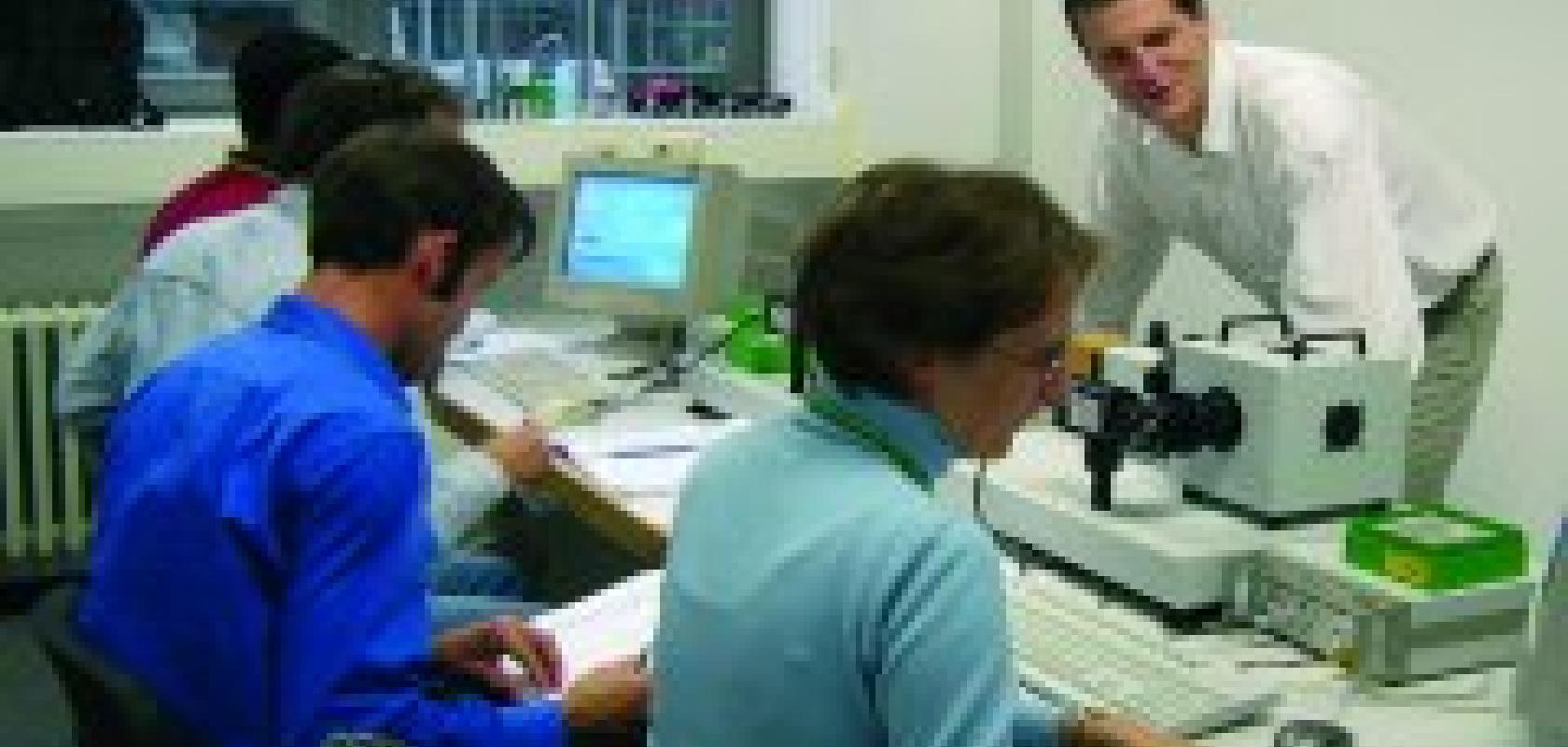Many companies are now offering training, either as part of a customer service commitment, or as an adjunct to the products and services they sell. Breault, for example, offers courses specifically for its ASAP optical analysis softwareMary Turner, director of training, says: ‘We offer a one-week introductory course with every purchase of the ASAP software, by way of a voucher included in the pack. The course provides engineers – who require some level of expertise in the first place – with all the knowledge they need to use the software for optical analysis. In general, the courses are for up to 12 people at a time, and we like to have a minimum of six as we find that interaction between students can be really beneficial.
‘The format of the course is based around reasonably formal lectures and a great deal of hands-on use of the software package. At the end of the course, students leave with a CD-Rom packed with examples of use and a large notebook of course material.
‘The courses, which are charged at $2,000 for those that don’t yet have the software, are usually run at our dedicated facility here at Breault, but we also deliver them through our international sales partners and at clients’ premises if there is sufficient demand.
‘We also offer several application-specific advanced three-day courses for $2,000, which cover more complex uses of the software, such as in stray light analysis. Some of our more experienced customers choose to take this as their “free” course, particularly those who are now repurchasing the software for a different company.
‘More than 90 per cent of our software customers take up the option of the free training, and that brings many benefits for us – not least of which is a significant reduction in the number of support queries we receive. Having been on the course, customers are much less likely to call up with basic queries, but through our annual maintenance package (which also provides access to software updates and so on), support is always available via email, phone or fax.
‘We are very pleased with our existing training offering, but we are looking at extending our range of courses to include more general optical engineering. We feel there are very few opportunities out there for training in optical engineering, and our industry needs a constant supply to continue to thrive. By introducing these new courses, we hope to be able to meet that need.’
A Breault training course in action
Picoquant is also heavily involved in training, but it is not so directly related to its own products. Picoquant’s Andreas Bulter says: ‘The events we organise are not “training” courses for customers. Rather, our courses/workshops have a scientific background on a particular topic, in which the “product” (in a broad sense) only plays a minor role.
‘Currently, Picoquant organises three annual events: Workshop on Single Molecule Spectroscopy and Ultrasensitive Analysis in the Life Sciences; Short Course on Principles and Applications of Time-resolved Fluorescence Spectroscopy (organised by PicoQuant together with the CFS Baltimore, Joseph R. Lakowicz); and Hands-On Workshop on ‘Making Single Molecule Fluorescence (Lifetime) Measurements Simple’, organised by PicoQuant along with the Center for Biophotonics at UC Davis, USA.
‘The courses are run in a range of ways. For example, the Single Molecule Workshop is all about exchanging experiences. It usually lasts around two and a half days, and attracts around 100 participants. We usually have around six to eight invited main speakers, and up to 30 speakers in poster sessions. There is a student award for best presentation too.
‘The Fluorescence Course is more like a university course or lecture. It is for individuals wishing for an in-depth introduction to the principles of fluorescence spectroscopy – mostly focused on time-resolved techniques. It takes a full week (five days), comprising lectures in the morning and hands-on sessions in the afternoon. The lectures are given by professionals with extensive experience in the field, and instruments for the hands-on sessions are provided by market leading companies. The hands-on sessions are designed to provide first-hand experience of how to do typical fluorescence lifetime -elated measurements using different techniques and approaches.
‘Finally, our Hands-on Course is a mixture between workshop/conference and a more formal course. It is intended for researchers interested in learning about new optical microscopy techniques/methods and single molecule spectroscopy. It is intended for all levels of expertise, including graduate students, technicians and professional researchers. The course takes two days, again comprising lectures in the morning and hands-on sessions in the afternoon
‘None of these events is exclusive to Picoquant. We do show our products and the subject areas are all somehow linked to our products, but you don’t have to be a customer in order to attend. In fact, often employees from our competitors attend the courses.’
Software companies like Picoqant put together training courses to provide better understanding of their discipline or their specific products
Joshika Akhil, technical sales engineer, with Laser Components, another company that offers training specific to particular products it manufactures, says: ‘We offer training on our spectroscopic systems and laboratory capabilities: we also offer laser safety advice and demonstrations. These training sessions are based on our quantum cascade laser and lead salt laser systems. Training sessions offer a full-day course, presented in two parts. The first is a classroom type environment, where the fundamentals of the physics and chemistry of spectroscopy are presented, with current trends and new developments also outlined. Our system capabilities and application-specific advice and discussions are encouraged. This is then followed by a laboratory component, which provides the main content of the training course. It consists of a “hands on approach” in the labs with a complete system. The idea is to allow the customer to see how it works and familiarise themselves with the capabilities and functionality of the system and software they are purchasing.
‘Training is offered as a part of the package when purchasing a complete Specdilas system – we also offer training-only sessions separate to a system, and these can be customised according to requirements.
‘In general the training we offer is designed to complement our systems. However, we also offer a general spectroscopy training day. This is designed to familiarise customers with spectroscopic techniques, latest developments and to assist in current projects and new applications.’
Education from SPIE
At the forefront of formal education and training in photonics is SPIE, which facilitates a wide range of over 800 courses. Topics covered include: nanotechnology; defence and security; aerospace, remote sensing and astronomy; automation, inspection and product engineering; biomedical optics; communications and fibre optics; electronic imaging, displays and medical imaging; lasers and applications; microelectronics, optoelectronics and micromachining; optical physics, chemistry and biology; optical science and engineering; and signal and image processing.
Courses are delivered in a variety of ways. Many SPIE conferences and exhibitions include a series of short courses for students and engineers as part of the conference programme. For example, the forthcoming Defense and Security Symposium in Orlando features more than 60 one-day and half-day courses.
In addition, SPIE delivers in-company training. As the name suggests, this brings instructors who are world-renowned experts, and often authors of definitive texts in their field, to teach at the client’s facility for one- to three-day courses. This method is designed to save those companies with a large number of people requiring training the cost of travel and accommodation.
Finally, SPIE features some of its short courses on CD-Rom or video, enabling self-study, with discounts for SPIE members. The CD-Rom versions often include a full audio portion of the instructor’s presentation, colour graphics, a glossary of terms, searchable text, and easy-to-follow lessons. There is a direct email link to the instructor for questions and comments. The video short courses typically run for around five hours, and are broken down into sections. The pack also includes a bound copy of the instructor’s course notes and associated illustrations.
Gary Colquhoun, European Industry Development representative for SPIE Europe, sees the impact of such education. ‘The interdisciplinary nature of photonics requires knowledge and understanding from many fields, including materials science, computer science, engineering and increasingly the life sciences. And with SPIE and SPIE Europe, successful companies are maintaining their competitive position through the continual professional development of their employees.’
The next generation
Many in the industry are concerned that the future of optical engineering is at risk, because of the lack of suitably qualified individuals coming through. One institution aiming to address that need is the Photonics Academy for Wales (PAW), based at Technium Optic in St Asaph, Wales. PAW is a technology-specific educational and training framework, supporting the pan-Wales delivery of learning opportunities at all levels. The concept is that of a ‘virtual’ institution using appropriate delivery mechanisms, including schools, further education and higher education institutions, and commercial and industrial premises. PAW will tailor activities for a number of age ranges, including: 11 to 14, photonics awareness; 14 to 19, science/technology decision-influencing activity; and 16 to 24, technician training. In addition, undergraduate, postgraduate, ad hoc and continuing professional development (CPD) training will be provided.
PAW has come about as a collaboration between Technium Optic, an optoelectronics business incubation centre, and the Welsh Assembly Government Department of Education, Lifelong Learning and Skills.


